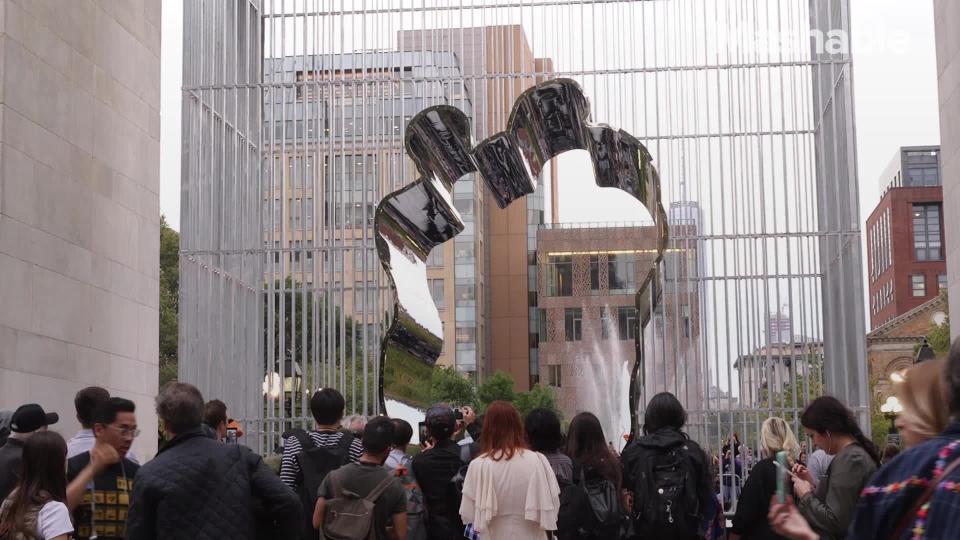Obsessively checking social media during a crisis might harm your mental health

Survivors of three recent disasters — the northern California fires, the Las Vegas mass shooting, and Hurricane Maria — used social media and texting as lifelines to connect with loved ones, seek aid, and search for the latest developments.
A new study, however, suggests that people who get updates during a major crisis from unofficial channels like random social media accounts are most exposed to conflicting information and experience the most psychological distress.
SEE ALSO: Kate Middleton explains in simple terms what mental health means in candid video
The study, published in Proceedings of National Academy of Sciences, surveyed 3,890 students whose campus was locked down after a shooter fired on people. Since it's difficult, if not impossible, to begin a scientific study during a life-threatening disaster or crisis, the researchers asked students about their experience a week after the incident and analyzed five hours of Twitter data about the shooting. (Details about what happened were anonymized at the university's request.)
"If random people you don’t know are tweeting information that seems really scary — and, in particular, if you're in a lockdown and someone is tweeting about multiple shooters — that’s anxiety-provoking," says Nickolas M. Jones, the study's lead author and a doctoral candidate at the University of California, Irvine.
While nearly everyone said they turned to officials like school authorities and the police, some people reported seeking more information from other sources, including social media, family, and friends. The researchers found that the people who most sought and believed updates from loved ones and social media encountered the most misinformation. They also said they felt more anxiety; heavy social media users who trusted online information, in particular, felt extreme stress. People who relied more on traditional media sources like radio and television didn't have the same experience.
Jones says that people might turn to social media to feel more control in the midst of a crisis, especially if authorities aren't sharing regular updates. But that sense of control just might be an illusion if someone instead sees rumors and conflicting information and feels more anxious as a result.
"You’re going to feel something no matter what because you’re a human being," says Jones. "Where you go from there to mitigate anxiety is what really matters."
In an info vacuum, rumors fly on social media. Check out our open access PNAS study of a campus shooting/lockdown https://t.co/ARPRI0mXXz pic.twitter.com/gBHZo7hLHl
— Nickolas M. Jones (@itsnickyjones) October 18, 2017
In other words, it's perfectly normal to seek information from any available source and to have an emotional response to rapidly unfolding events. But people who feel helpless during a crisis may be primed to see patterns where none exist, making rumors and misinformation particularly dangerous. Their ability to process and scrutinize information may also be diminished.
While Jones and his co-authors only surveyed those affected first-hand by the lockdown, he believes the public might experience a similar dynamic during crises. Think, for example, of the last time you scrolled through social media during a disaster and tried to sort through confusing accounts and rumors. It's probably not that hard to recall a sense of creeping anxiety.
SEE ALSO: How to cope — and help others — after the deadly mass shooting in Las Vegas
Part of the broader problem is that the public now seems to expect fast and frequent updates thanks to the speed of social media, but authorities often still operate with tremendous caution. In the campus shooter case, 90 minutes transpired between two official updates from the police. During the entire incident, Jones and his co-authors found that a handful of false rumors were retweeted hundreds of times, including information about multiple shooters and what they were wearing.
The study's authors recommend that emergency management officials stay in regular contact with people. Even if they don't have new information, they can still send messages that help alleviate anxiety and uncertainty by addressing the situation and reassuring the public. They should also monitor social media for rumors and "tackle them head on," says Jones.
Rumor control: Be advised there are no evacuations in the City of Rohnert Park. The information is false that the city is under evac.
— County of Sonoma (@CountyofSonoma) October 12, 2017
The Federal Emergency Management Agency, for example, compiled a list of debunked rumors regarding Hurricane Maria recovery efforts in Puerto Rico. The city of Santa Rosa and Sonoma County, both of which were devastated by fires in Northern California last week, posted tweets to address rumors. Efforts like these are crucial. It's equally important to ensure people can actually access official websites, social media pages, and text message updates in the midst of a disaster.
But the bottom line, says Jones, is learning to seek news carefully: "For anybody who’s turning to social media to get critical updates during a crisis, I think they just need to be skeptical about some of the information they’re seeing from unofficial sources."
WATCH: Ai Weiwei debuts 'Good Fences Make Good Neighbors' in NYC in response to the refugee crisis


